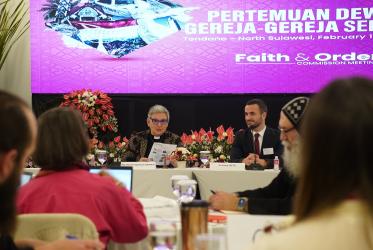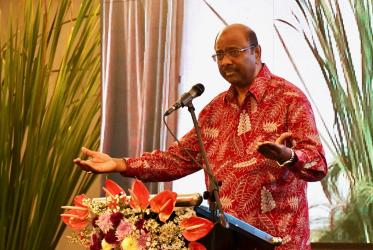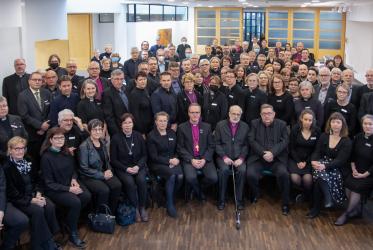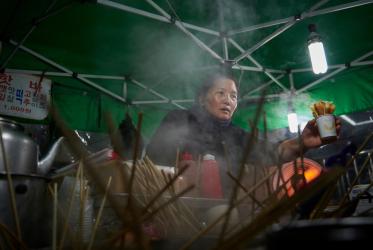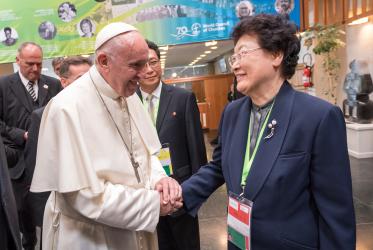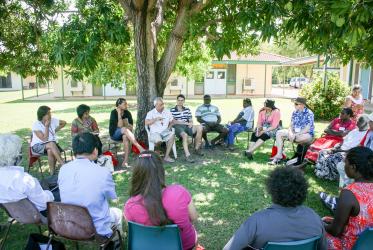Displaying 1 - 20 of 37
03 February 2024
CCIA meets in Brisbane with focus on Pacific regional priorities
19 February 2020
Hanbeet Rhee: “Young people can be bridges”
17 October 2019
Peacemakers at work in Sri Lanka
29 April 2019
Thursdays in Black: sharing support, transforming lives
21 February 2019
In Indonesia, hearts and minds turn to pursuing justice and unity
09 September 2017
WCC offers condolences upon death of Anglican Archbishop Turei
13 January 2017
Indigenous spirituality: can it transform injustice into justice?
01 September 2016
